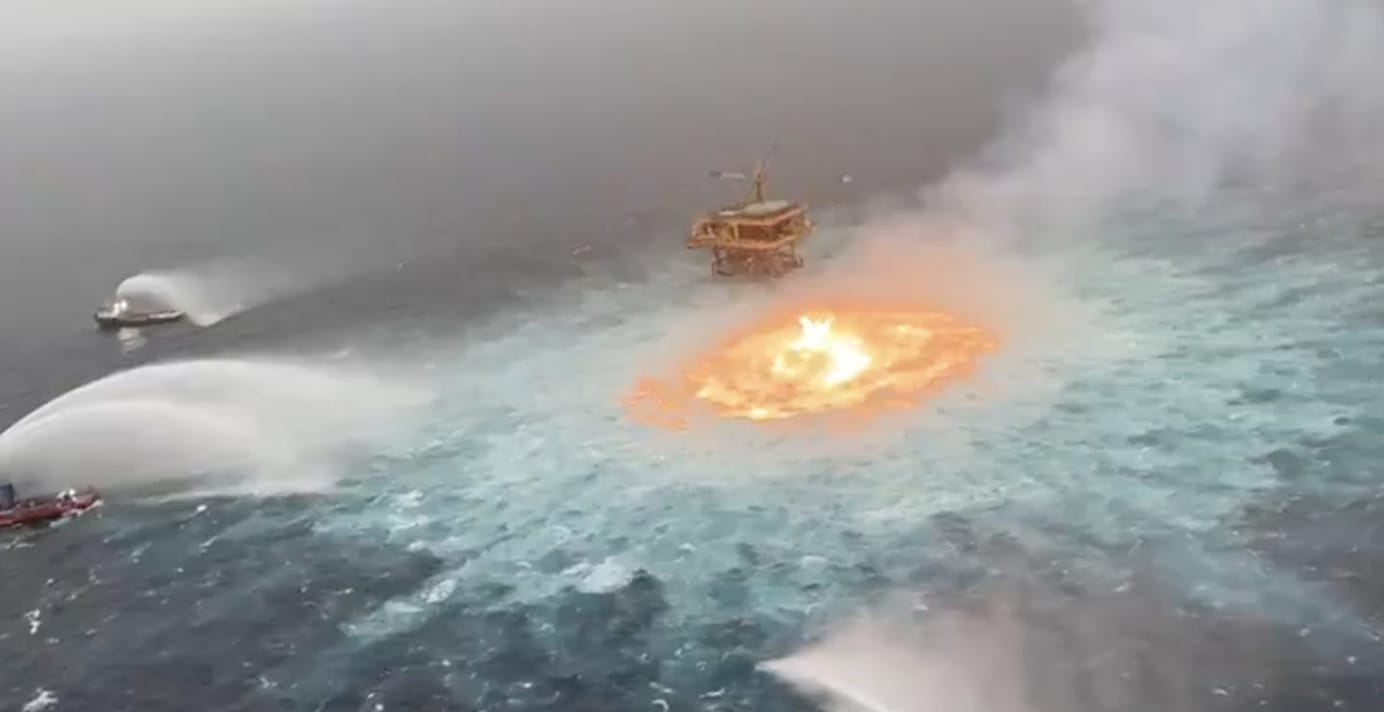
It’s Time to Change the Way We Talk About Climate
Increasing the Urgency & Education of the Climate Crisis to Save Our Future
Has anyone seen the weather lately? These days, I feel like I’m waking up to a fresh new hell on earth every day. Whether it was the literal ocean on fire that felt straight from the movie (future documentary?) The Day After Tomorrow or watching a Prius being slowly dragged down a muddy, flooded road in Arizona, seems dire no matter where you look.
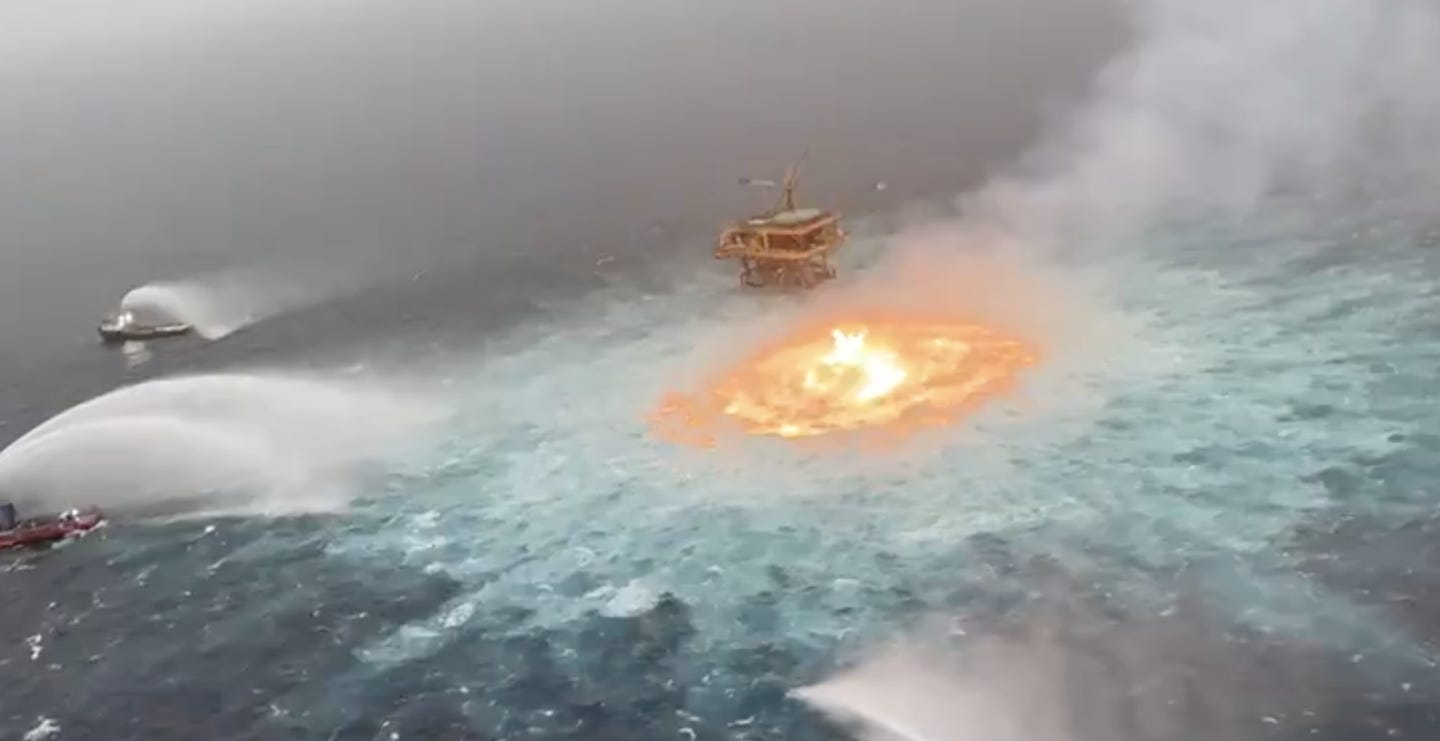
Think back on the last year, have you experienced any unusual weather yourself?
Even if you ignore the post-apocalyptic climate news (the Bootleg fire in Oregon is literally creating its own weather?!), there is plenty of unprecedented weather occurring in your own backyard.
- If you’re from California, you’ve probably breathed hazardous air during fire season. You might have already had a mask before the pandemic for this very reason!
- The Texas energy grid has been strained twice in one year. First for extreme cold and then extreme heat.
- While the Pacific Northwest was experiencing a ”heat dome” of 100+ degree weather, San Francisco had the coldest July day on record. (Mark Twain would be proud)
- In the Gulf, hurricane season has started early. In early July, researchers adjusted their forecasts for an even worse hurricane season than they were originally predicting. And it already wasn’t looking good.
- Even the states you don’t think are affected, very much are. New Mexico’s average annual temperature has increased by about 2.7 degrees Fahrenheit and that is expected to accelerate quickly in the coming years.
And that leads me to the growing and crucial need for our society to change the way we talk about climate change and weather in general.
Climate is Everyone’s News Beat
I had planned on writing about climate last week, but the heroic acts by Texas Democrats got in the way. And that is a perfect example of the issue with climate change coverage. There is always a reason to bump it. There is always a politician saying something crazy, another mass shooting, another billionaire using his millions to go on a joy-ride to space.
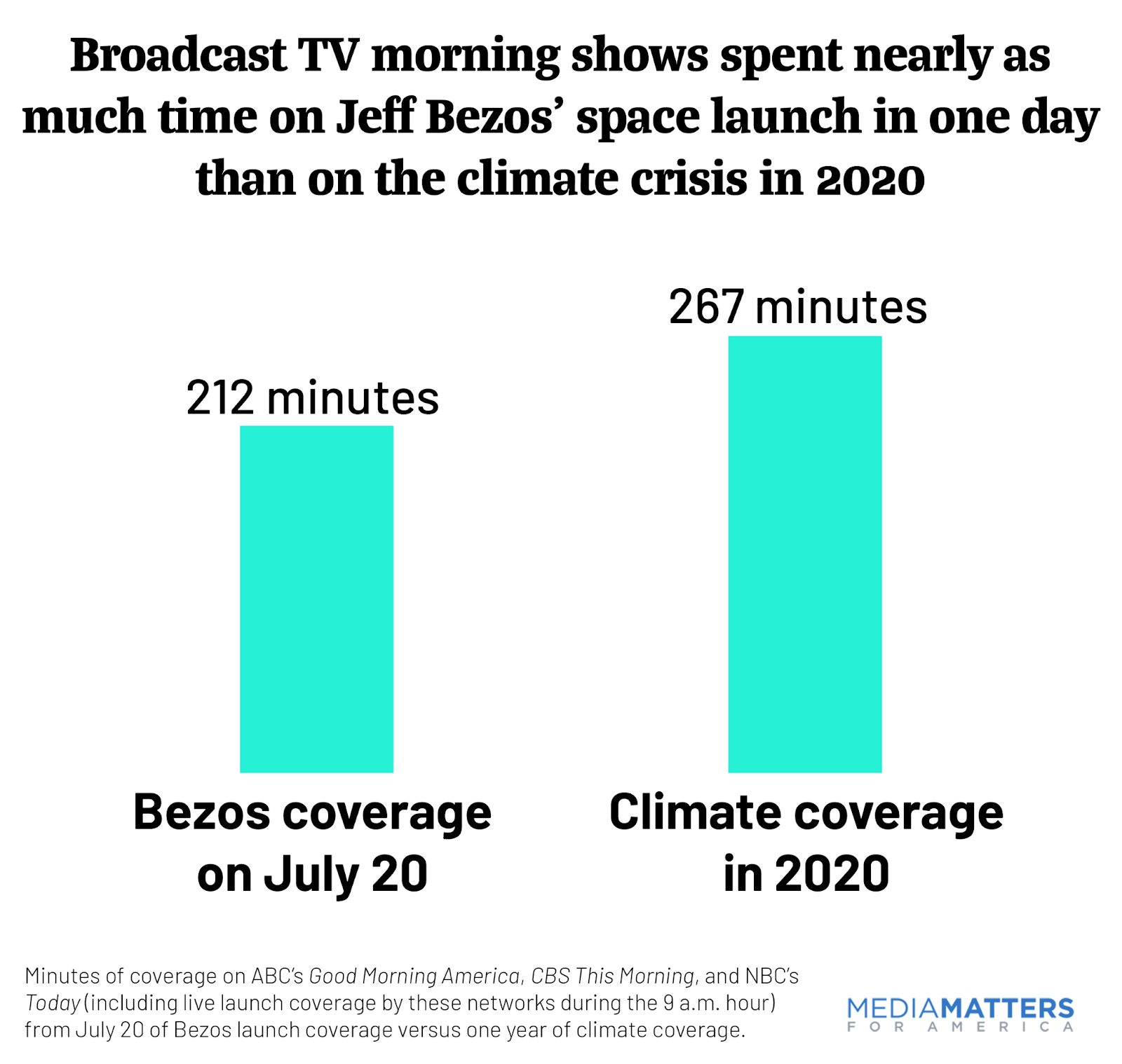
But we are at a point that we can no longer ignore or push off the climate discussion. Scientists have been warning about the climate crisis for decades. For many reasons (the power of oil lobbyists, lack of will for societal change, GOP undermining of government action, etc.), we as a society have not prioritized climate and we are living the consequences.
As we see the effects of the climate crisis grow and come closer to home, anyone with influence, but especially the local and national media needs to prioritize climate coverage and education of the climate crisis. I get it. Media is a money-making business. Why feature a climate expert when you could increase your ratings and cover the latest scandal from a new Trump book?
The climate crisis is a slow-moving disaster that is hard to excite and gain eyeballs (viewers), but there are plenty of opportunities for coverage. The media’s responsibility is to educate and inform the public about the issues of our time. What is more critical than the sustainability of our planet for future generations?
Tying Weather to the Climate Crisis
In addition to more climate coverage, we also need greater education. A recent report from Media Matters, a media watchdog group, showed that only 17% of news segments about the heatwave in the Pacific Northwest linked the disaster to climate change. The link between extreme weather and human-caused climate change is not clear in many communities where the impacts of the climate crisis are less severe. This is not an isolated incident. While this study was specifically linked to cable news, local news actually has an even bigger part to play because of its trust levels within the community.
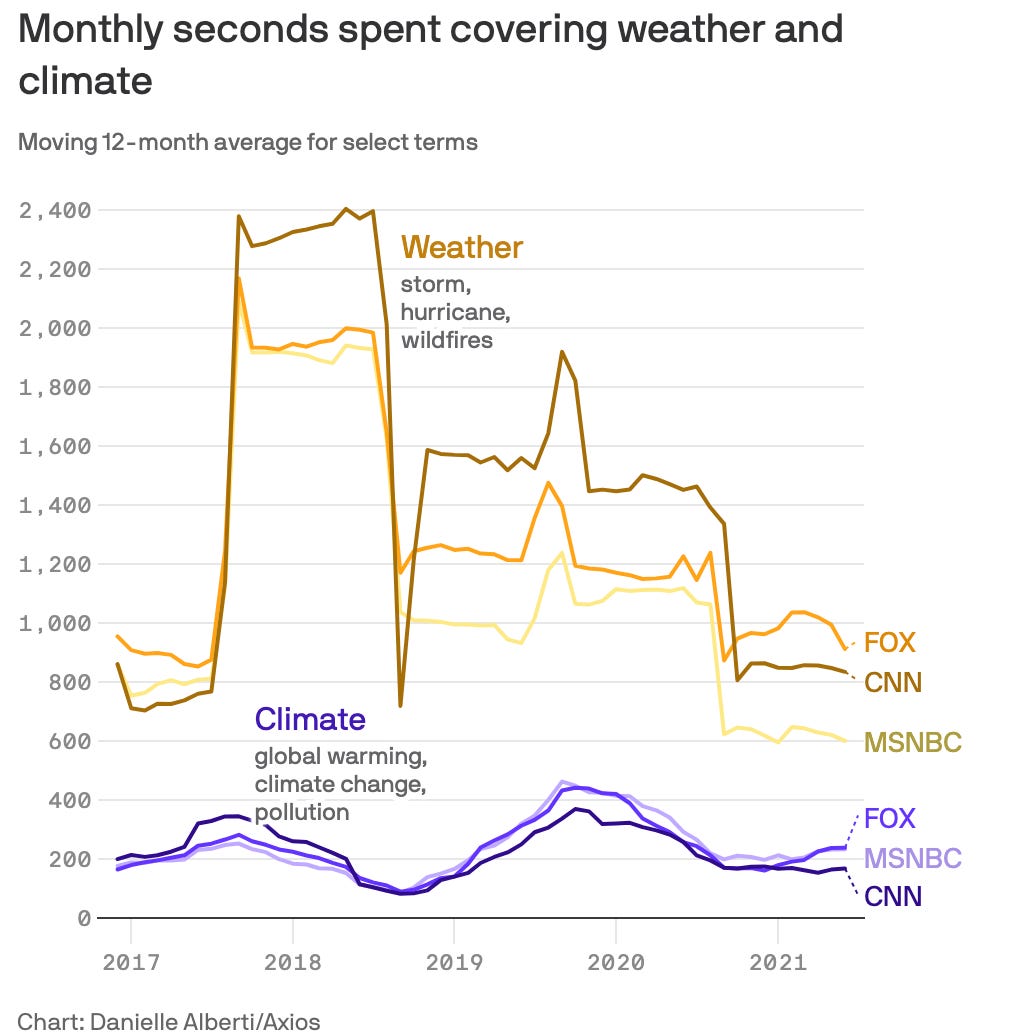
Progress is being made on this front. In June, the nonprofit science research group, Climate Central, launched a new tool to detect climate change-induced unusual weather and trigger real-time emails to newsrooms. However, the challenge will be getting local news affiliates to use the alerts. A majority of local TV affiliates are owned by Sinclair Broadcast Group, a conservative group that has been known to force affiliates to run untrue right-wing stories and censor more liberal coverage on things like climate. Local news is one of the most trusted news sources for most Americans. It’s important that local news is accurately tying unusual weather to climate change to educate many Americans that are not yet directly impacted by the climate crisis and raise the stakes for politicians to act.
Start Asking How We Can Afford Not to Act
A common refrain from the right is how expensive climate action is. But we are at the point that this talking point is completely irrelevant. The question is not how expensive it would be to enact climate policy, but how expensive it would be if we didn’t.
Let’s look at some recent climate disasters, the costs speak for themselves. If we keep having more Hurricane Harvey’s or California wildfire seasons, we will be costing the United States trillions of dollars every year.
- Hurricane Harvey damage was $125 Billion
- The cost of the Texas Winter Storm power outage was $80-130 billion
- The Surfside condo needed $9 million in repairs, now Florida is spending more than that for the search, rescue, and salvage. Not to mention, the cost of building a new building in its place
- In 2020, the cost of wildfire damage in California reached $12 billion
On a more macro level, experts now say that it costs 5 trillion dollars every year that we do not act on climate. I’m pretty sure Ted Cruz understands economics so this one seems like a no-brainer for the party that claims they can handle the economy better (was that shade? I sense shade).
Yes, it’s going to cost us money to change our energy grid to renewable energy sources.
Yes, it’s going to cost money to electrify our transportation.
Yes, it’s going to cost us money for companies to reduce their plastic usage.
But how much more money will it cost when the climate crisis continues to intensify? And on the flip side, how much could climate action build the American economy and bring a living wage to many Americans?
A Coming Sea Change
Apart from the media, governments have been the slowest to act. No offense to our elected officials, but they are old. The average age in the Senate is 62.9 and 57.6 years in the House. Many of these politicians will be long gone before the even more drastic effects of climate will impact the United States.
But there is hope because younger generations are not going to put up with that much longer. Millennials and Gen Z overwhelmingly want to see action to stop climate change and they will soon be the majority of the electorate.
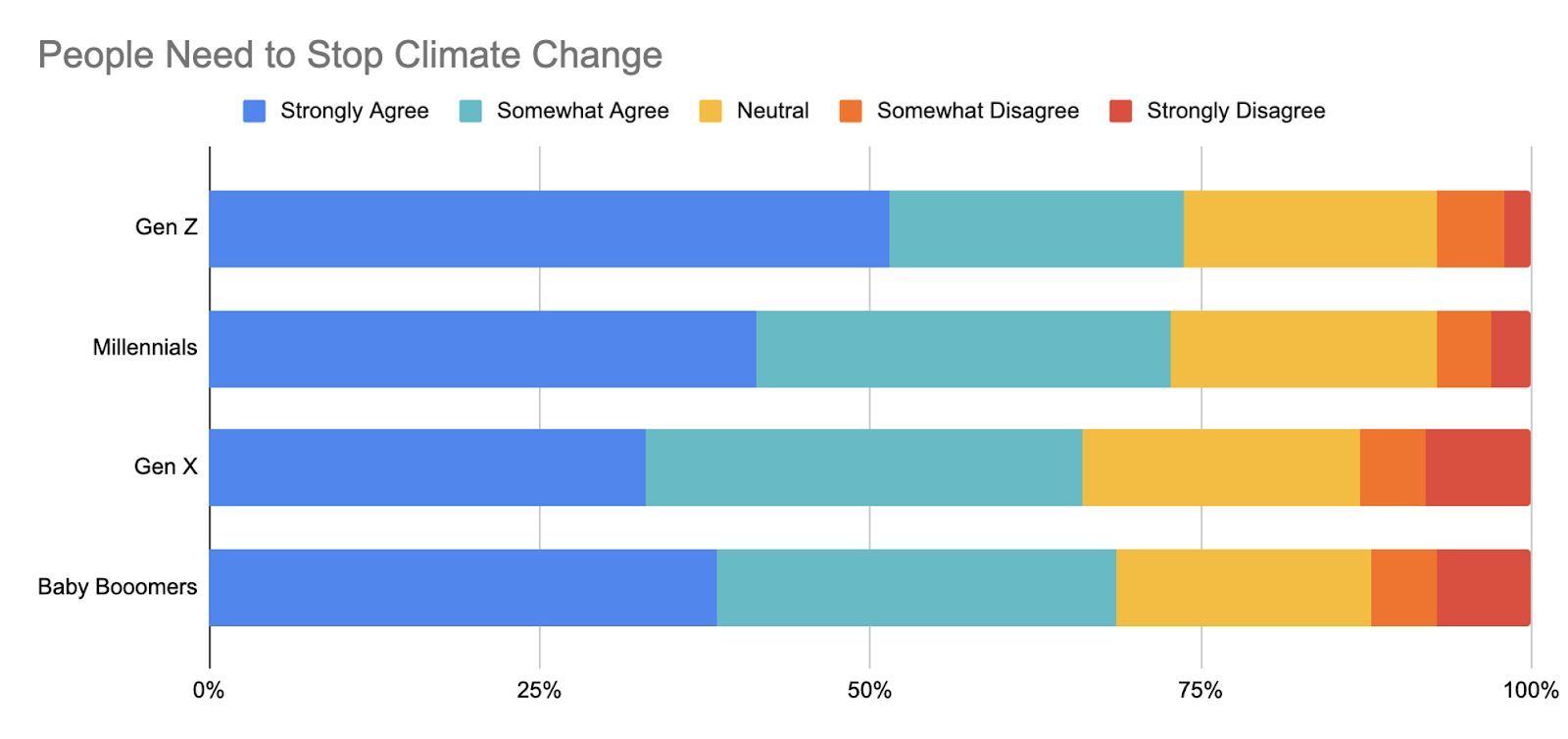
It’s time for elected officials to start listening to the constituents that will have to bear the worst consequences of climate inaction. By making climate a priority when you are voting, you are telling your elected officials that they need to act or a client-friendly candidate may come along. This is quite literally the existential threat of our time. Let’s make sure our government knows that.
the roots of change media ecosystem Newsletter
Join the newsletter to receive the latest updates in your inbox.



